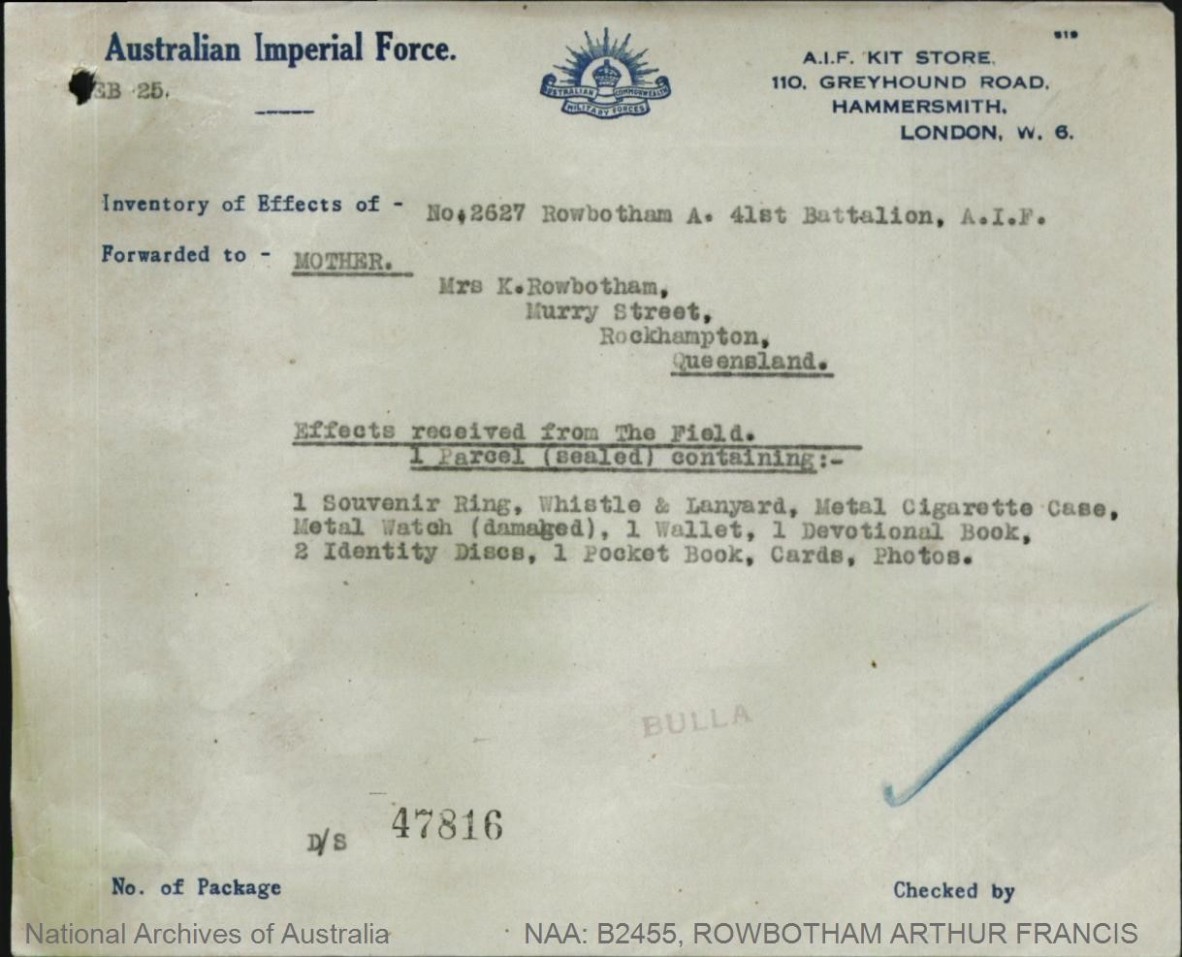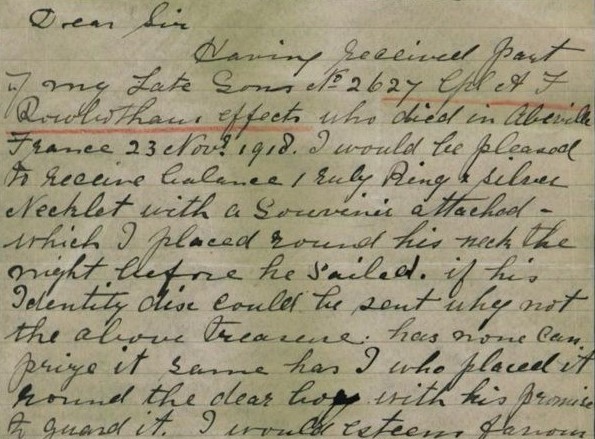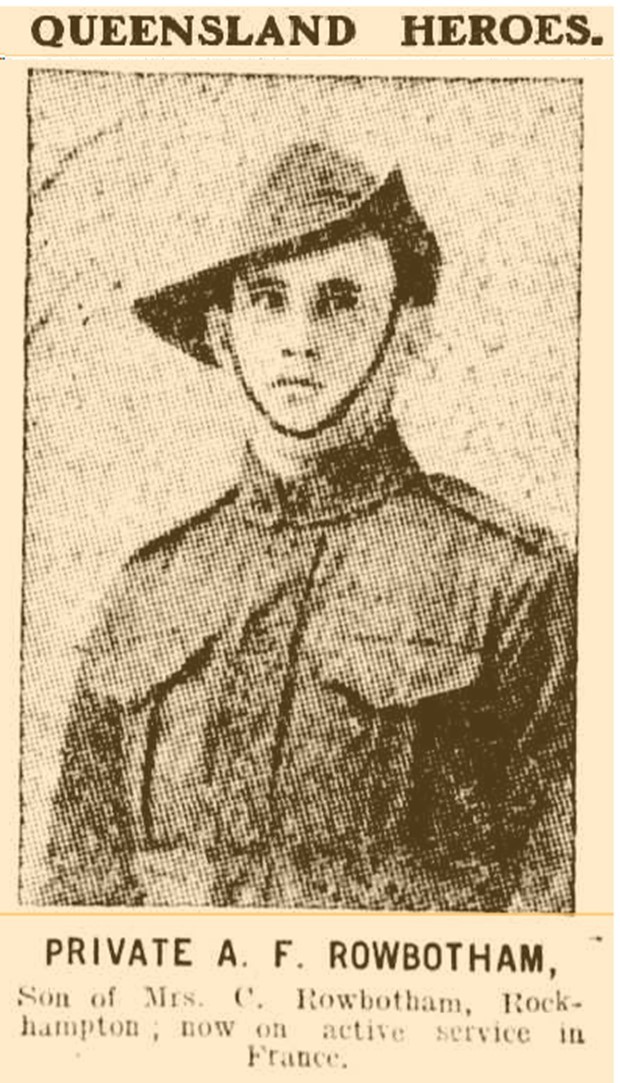An irony of the 1918 Armistice: a tale of a young soldier
By Stephanie Ryan, Research Librarian, Library and Client Services | 3 November 2023
The armistice for the First World War – 11 November, 1918 - had passed and Arthur Rowbotham had sent his Christmas cards so they would not crumple in his pack. He had enlisted in the Australian Imperial Force at Rockhampton on 3 October 1916 aged 21 and his service was later recorded in the Rockhampton newspaper in 1917.
Major Dibdin’s account of what happened 12 days after the Armistice appeared in the Morning Bulletin Rockhampton, 14 March, 1919, p10.
A few days before his death he was evacuated to hospital with influenza, and it appears that he developed pneumonia, which has had horrible results with quite a lot of our original men. There were three others like your son who came away with the unit, went through everything, and then, while out resting, got influenza and died from it.
The tragedy of the 'Spanish flu' had struck Australian troops with sudden, deadly effect. Young men, recovering from the ravages of war, quickly slipped away. Arthur Rowbotham was just a month short of his 24th birthday. His Christmas cards arrived after his death.
His few personal effects mentioned in his service record.

NAA: B2455, ROWBOTHAM ARTHUR FRANCIS (p.38)
AIF Inventory of Effects of Arthur Rowbotham
His mother grieved that a ruby ring and a necklet she had placed on her son’s neck the night before he sailed were not passed to her.

NAA: B2455, ROWBOTHAM ARTHUR FRANCIS (p.28)
Mrs Rowbotham’s letter, 22 January 1920
Major Dibdin offered comfort as indicated in the Morning Bulletin article on the 22 March 1919, stating “He was fully 6 ft. high, and so well made with it, that he always did us credit.”
Chaplains also added their condolences. Rev. Mills wrote:
It seems hard that he should be called home through illness (bronchial Pneumonia) after coming safely through the perils of war. Your son died in the Third Australian General Hospital, Abbeville, and was buried in the military section of the Abbeville Cemetery, France.
Captain Chaplain Jones added further that “he was a really good lad.”
The Queensland Registry of Births, Deaths, and Marriages acknowledged the contribution of all soldiers from Queensland who died overseas by collecting their personal details from military records and their family. Registry volunteers created special death records for them.

Queensland Registry of Births, Deaths and Marriages family history service
The year, 1922, and the prefix, F, indicate distinctive Queensland records acknowledging the deaths of individual WW1 soldiers.
Thus, the poignant war death of a young man was recognised in these ways. The flu caused its first official death in Queensland in May 1919. It was believed initial infections came from returning troops. At least 50 million people died world-wide from this pandemic. Most died mid-September to early December 1918.
Find out more….
Discover other stories about Remembrance Day 11 November
https://www.slq.qld.gov.au/blog/results?keys=Remembrance+Day
Check the catalogue One Search https://onesearch.slq.qld.gov.au/
Become a member https://www.slq.qld.gov.au/services/membership
Ask a librarian https://www.slq.qld.gov.au/services/ask-librarian
Plan your visit https://www.slq.qld.gov.au/visit
Find out what’s on at State Library https://www.slq.qld.gov.au/whats-on
Comments
Your email address will not be published.
We welcome relevant, respectful comments.
